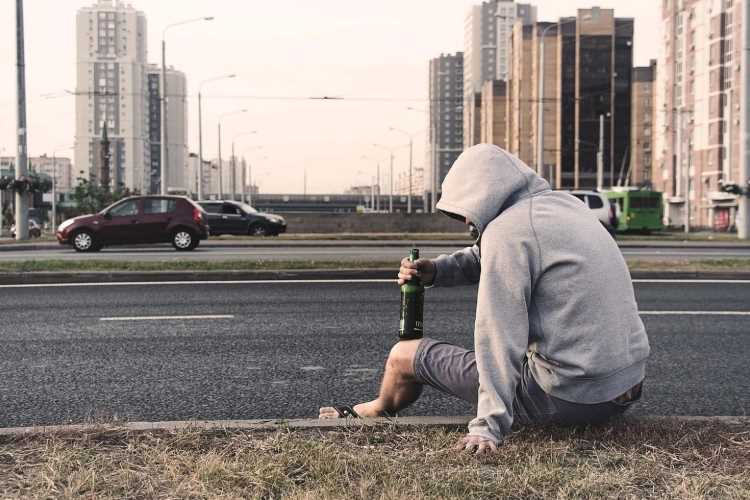
By Shilpa Modi Pandav
India must be the first country to turn to alcohol sale to tide over the fiscal challenges thrown by Covid-19. Like always, the ones with no voice will pay the price for bad governance and reckless decisions. While the government is counting money raised by increasing alcohol taxes and opening of alcohol sales (shops, online and home delivery), countless families are undergoing emotional and financial distress. World over, lockdown has led to an exponential increase in domestic violence and child abuse. India is no exception. A majority of the cases will go unreported even though a few will make it to record. To add insult to injury, the government has exposed these victims to further abuse.
Harmful use of alcohol threatens the development of nations by imposing enormous health, social and economic burden. According to the World Health Organization (WHO), harmful use of alcohol results in 3.3 million deaths each year. It is a cause of more than 200 disease and injury conditions, most notably alcohol dependence, mental and behavioural disorders, liver cirrhosis, cancers, injuries and deaths resulting from violence and traffic accidents. There are causal relationships between alcohol consumption and incidence of infectious diseases such as tuberculosis and HIV/AIDS. There are strong links between alcohol consumption and interpersonal violence: youth violence; child maltreatment; intimate partner violence; elder abuse; and sexual violence.
READ: An imperfect future: Imagining the post-Covid world order
According to WHO, India accounts for more than a fourth (27%) of global tuberculosis cases and around 1,200 people die every day from the disease. In 2018, nearly a fourth of tuberculosis cases in India are attributed to alcohol abuse. As per the National Mental Health Survey 2015-16, approximately 9% of adult men suffer from alcohol use disorders.
According to the National Family Health Survey 2015-16, 73.4% of women whose husband consumed alcohol often experienced emotional, physical or sexual violence compared to 25% of women whose husbands did not consume alcohol. According to a 2019 study, between 2011 and 2050, alcohol attributable deaths would lead to a loss of 258 million life years. Treatment of these conditions will impose an economic burden of Rs 3,12,700 crore ($ 48.11 billion) on the health system.
READ: Government must enlist experts, NGOs in fight against recession
This policy also has a footprint of management consulting firms whose personnel are embedded in NITI Aayog, a policy think tank of the government of India, and the government system both at the central and state level. One hallmark characteristic of their thinking is to go for the lowest hanging fruit without any consideration of the consequences. Nothing could be more expedient than making addictive commodities easily available and raise taxes. This may solve the immediate cash crunch, overall harm notwithstanding.
Alcohol-related death and illness are drivers of poverty, leaving households without breadwinners. Consumption of alcohol and tobacco products divert limited household resources and force many people to pay for medical expenses. Covid-19 should have generated a debate on sustainable development that takes environment and health into account. Policies encouraging alcohol use have been adopted at a time when the Covid-19 curve is on the rise, not taking into account the fact that alcohol compromises judgement and interferes with practicing of protective behaviours such as physical distancing, hand washing and cough etiquette. Isolation increases vulnerability to alcohol use and making it easily available will further spur dependency. When other countries such as Thailand, South Africa have taken measures to ban sale of alcohol to prevent risky behaviour, several states in India have done just the opposite.
READ: Decongest cities, promote industries in villages to revive growth
The economic crisis triggered by the Covid-19 outbreak has led to a sharp increase in India’s unemployment rate. According to the Centre for Monitoring Indian Economy (CMIE), the unemployment rate stood at to 27.11% for the week ended May 3, 2020 up from the under 7% in mid-March. This implies that the household savings will be directed for the purchase of alcohol, pushing the households further into financial distress. This myopic step has not taken the direct impact of increased healthcare costs due to diseases and injuries related to alcohol consumption.
What should have met with public outrage, instead has found placid acceptance. There should have been a raging debate on under funding and defunding of public health systems, of not heeding to the warnings from Public Health experts about epidemics and pandemics, of ignoring scientists, environmentalists, sociologists and anthropologists. Instead reckless policies, mockery of science and evidence have found acceptance. What is next now? Re-open vaping bars, lifting ban on electronic cigarettes, promoting smoking with higher taxes.
(Shilpa Modi Pandav is a public health professional. She holds a doctorate in Economics from the University of Sussex. The views are personal.)

